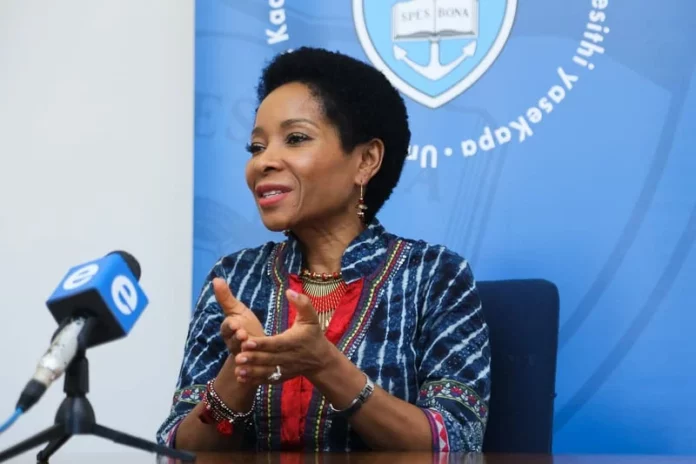A damming report into the leadership style of University of Cape Town’s vice-chancellor (VC) Mamokgethi Phakeng has cast her future in doubt, with those with intimate knowledge of the happenings at UCT claiming that the report is part of a larger scheme to get rid of her.
UCT ombud Zetu Makamandela-Mguqulwa last week lashed out at Phakeng and other executives in her 2019 annual report published on the ombud’s website.
The report’s reporting period coincides with Phakeng’s first year at the helm of UCT (July 1 2018 to June 30 2019). “During this reporting period a number of work-related complaints came to me about professional interactions with the VC where people felt bullied, silenced, undermined, rebuked and/or treated unfairly. Their pain was visible. Some affected bystanders also came to express fear and told me how they were impacted individually by different incidents,” Makamandela-Mguqulwa wrote in the foreword of the annual report.
Makamandela-Mguqulwa, who has been in the role since 2011, goes on to say that there is a growing use of public humiliation, manipulating and intimidating the seemingly powerless, using passive-aggressive behaviour, and flaunting of power and authority at UCT.
Makamandela-Mguqulwa recommended that the current council make a plea to the university to finalise a bullying policy. Phakeng is accountable to council for the leadership of the university. A legal opinion sought by council and seen by Sunday World is critical of Makamandela-Mguqulwa’s report, particularly from moving away from past practice and naming executives in the report.
“Instead, in this instance without following any process she has seemingly pronounced in judgement on these issues. Critically, the VC [and the executive and deans] have not been afforded an opportunity to be heard, to address or to remedy the allegations,” reads the legal opinion in parts.
“In conclusion, the ‘Message from the Ombud’ exceeds the powers, authority and mandate of the TOR [terms of reference], and the reporting requirements of the job description, and breaches the foundational principles of the office of the ombud. The ombud has no power to make such pronouncements.”
The ombud’s report was published just days before the new UCT council was due to meet for the first time Saturday to elect its new leadership for the next four-year term of office. A source who works at UCT but is not allowed to talk to the media said the ombud’s office was being weaponised to get rid of Phakeng. “Knives have been out for Phakeng since her first day in office,” the source said.
UCT spokeperson Elijah Moholola said neither Phakeng nor the council would be commenting on the contents of the ombud’s report. “The matter is a confidential one and it is therefore not appropriate for confidential matters to be discussed outside the council process in the public space,” Moholola said.
The ombud did not answer questions sent to her and calls to her office went unanswered



